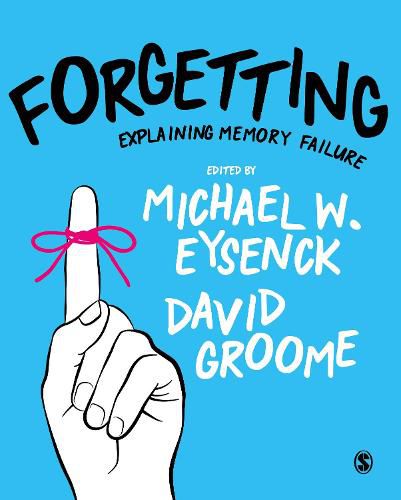Readings Newsletter
Become a Readings Member to make your shopping experience even easier.
Sign in or sign up for free!
You’re not far away from qualifying for FREE standard shipping within Australia
You’ve qualified for FREE standard shipping within Australia
The cart is loading…






Forgetting is the most obvious feature of human memory, whether this is everyday forgetfulness, like leaving your keys at home, or more serious medical conditions, such as amnesia. Forgetting: Explaining Memory Failure uses the most up-to-date evidence available to examine the psychological processes behind these extremes and everything in between. It explores why we have so little recollection of our childhood lives, as well as why we may create false memories of events that never happened.
In this book, Michael Eysenck & David Groome use cutting-edge research to examine one of the central issues in the study of memory: forgetting. It challenges assumptions about the processing of memory, offering insights into key debates, as well as providing readers with the critical skills to develop their own conclusions on the topic. With chapters from leading figures, this book also emphasises the positive aspects of forgetting, an important and often overlooked area in the field.
$9.00 standard shipping within Australia
FREE standard shipping within Australia for orders over $100.00
Express & International shipping calculated at checkout
Forgetting is the most obvious feature of human memory, whether this is everyday forgetfulness, like leaving your keys at home, or more serious medical conditions, such as amnesia. Forgetting: Explaining Memory Failure uses the most up-to-date evidence available to examine the psychological processes behind these extremes and everything in between. It explores why we have so little recollection of our childhood lives, as well as why we may create false memories of events that never happened.
In this book, Michael Eysenck & David Groome use cutting-edge research to examine one of the central issues in the study of memory: forgetting. It challenges assumptions about the processing of memory, offering insights into key debates, as well as providing readers with the critical skills to develop their own conclusions on the topic. With chapters from leading figures, this book also emphasises the positive aspects of forgetting, an important and often overlooked area in the field.